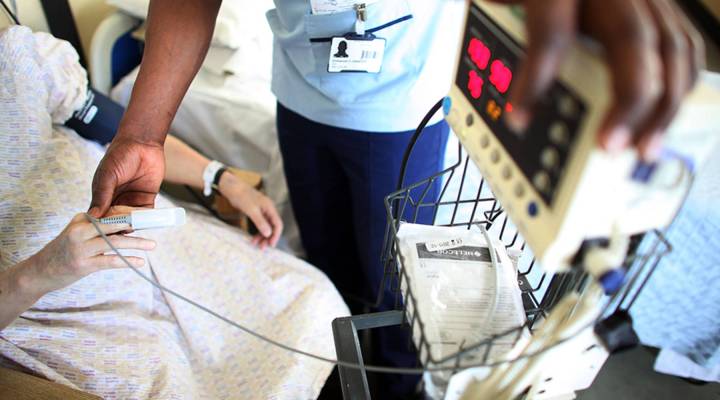
Some health care firms focus on empathy to keep people healthier
Some health care firms focus on empathy to keep people healthier

During the past decade, some health care businesses have begun to experiment with new ways to keep people healthier and out of the hospital by improving the relationships between medical professionals and patients.
This push for more empathetic care springs from a change in how health care providers get paid. Keeping people healthy can be more lucrative than treating sick people.
The Penn Center for Community Health Workers, based in West Philadelphia, hires and trains its staff to work with people in their homes and neighborhoods to help patients figure out how to deal with their health problems. To build strong connections quickly, the Center looks to match patients who cycle in out and out the hospital — often related to medical illness, poverty and mental health concerns — with community health workers from similar upbringings. The belief is the more these front-line workers have in common with their patients, the more patients will trust them.
“The community health workers really says, ‘I’m not here to tell you what to do. I’m here to ask you, Mr. Jones, what do you think you need in order to improve your health?’ Which we don’t typically ask in health care,” said Dr. Shreya Kangovi, the director of the Penn Center for Community Health Workers.
In a randomized control trial, the Center has shown community health workers have reduced hospitalizations by 30 percent. That kind of return on investment grabs the attention of health care executives these days. Already, the program has served more than 6,000 people in Philadelphia and has begun working with health care providers around the country.
One reason for the interest in community health care workers and the emphasis on more empathetic clinical staff stems from the fact that hospitals and physicians, increasingly, have financial incentives to keep patients out of the hospital.
Dr. Joe Betancourt, founder of the Boston-based firm Quality Interactions, said he’s watched demand for his services grow over the last several years. Betancourt trains doctors and nurses to improve their relationships.
“We’re trying to thread the needle between the reality that we don’t have a lot of time and we can’t spend an hour asking a lot of questions, and getting more information than if we did nothing,” he said.
As consumers in high-deductible plans continue looking to save money, and Medicare continues to reimburse hospitals and doctors for patient outcomes rather than the overall number of patient visits, companies selling empathy have a growing market.
But Dr. Toyin Ajayi, with the new Brooklyn-based health care startup Cityblock Health, says despite the value empathy potentially offers, she doesn’t hear too much about it.
“People are talking about cost-saving and operational efficiency,” Ajayi said, “they are not yet talking about empathy and relationships.” But, Ajayi said, health care executives should be.
There’s a lot happening in the world. Through it all, Marketplace is here for you.
You rely on Marketplace to break down the world’s events and tell you how it affects you in a fact-based, approachable way. We rely on your financial support to keep making that possible.
Your donation today powers the independent journalism that you rely on. For just $5/month, you can help sustain Marketplace so we can keep reporting on the things that matter to you.












